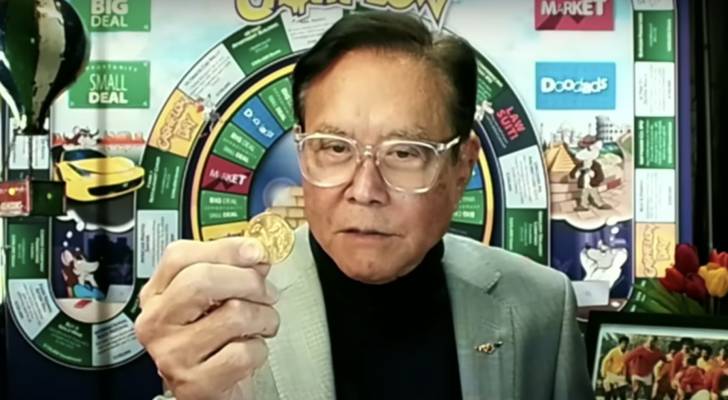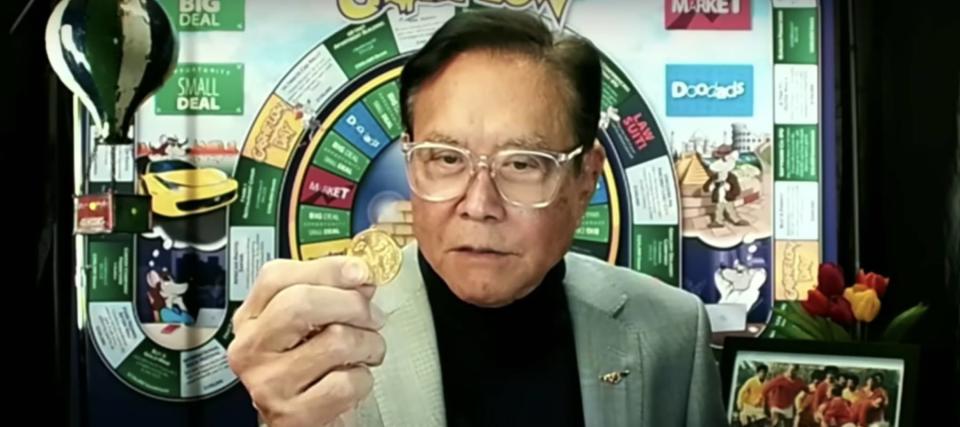Robert Kiyosaki warns the US is broke, bankrupt, and our dollar is ‘trash’ — says that printing money to solve problems can’t go on much longer. Is he right?


Robert Kiyosaki’s bestselling book “Rich Dad Poor Dad” challenged conventional wisdom and presented a unique perspective on personal finance and investing. And now, the author is extending his critical perspective to the very concept of money itself, with a particular emphasis on the U.S. dollar.
“America is broke right now, and we saw that coming back in 1971, you know, Nixon took the dollar off the gold standard, and then this became trash,” he said during a recent Fox Business interview while holding up a $1 bill.
Don’t miss
After World War II, the U.S. adopted the Bretton Woods system, under which the value of the dollar was pegged to gold. In 1971, President Richard Nixon terminated the dollar’s convertibility to gold, transitioning the U.S. currency to a fiat system. As a result, the Federal Reserve gained increased flexibility in managing the economy through monetary policy.
Kiyosaki is not a fan of what happened next.
“And so they just kept printing and printing and printing,” he said. “Every time they printed money, the empire went down. And I hate to say this because I love America, but America is in serious trouble financially because of the debt load.”
So, how much debt does America have?
Dollars and debts
According to the Treasury Department, America’s national debt currently sits at a staggering $33.87 trillion.
Given the fact that interest rates are elevated, this level of debt raises concerns about the long-term fiscal sustainability of the U.S. High interest rates can significantly increase the cost of servicing the national debt, meaning more of the federal budget must be allocated to interest payments.
The U.S. spent $659 billion on net interest payments in the 2023 fiscal year, according to the Treasury Department. This amount has nearly doubled from what it was in 2020.
According to Kiyosaki, this could also lead to more money printing.
“They’re going to keep printing more money to pay for the debt,” he said.
Over the decades, consumers have experienced firsthand how money printing can contribute to inflation. Although headline inflation has receded from its peak last summer, Kiyosaki does not believe this is the end of rising price levels.
“I hate to say this, but inflation is here to stay, incompetence is here to stay,” he said.
Read more: Thanks to Jeff Bezos, you can now use $100 to cash in on prime real estate — without the headache of being a landlord. Here’s how
Flying behind enemy lines
If you are looking for ways to hedge against inflation, you might want to pay attention to Kiyosaki’s story about the time he served in the Marine Corps as a helicopter gunship pilot during the Vietnam War.
“In 1972, I was flying this thing — helicopter gunship — in Vietnam. And I flew behind enemy lines after Nixon took the dollar off the gold standard to buy this here — and I paid $50 for it,” the businessman recalled while holding up a gold coin.
“And today it’s worth $2,000. Ever since then, I’ve been a gold nut.”
Gold has historically been considered a reliable store of value. The yellow metal can’t be printed at will by central banks like fiat money, and its safe-haven status means demand typically increases during times of uncertainty.
And it’s clear what Kiyosaki’s advice is in the current environment.
“Unless we cut back on entitlements or the military, which we won’t do, I would rather have this, gold, than this, they can print,” he remarked, showing a gold coin and then a $1 bill.
Moreover, while Kiyosaki anticipates further money printing, he does not think this approach will solve America’s debt problem.
“We’re bankrupt. And why don’t we say that? We just can’t keep printing more money to pay it off. And that’s really the problem. We just keep printing money to solve our problems, but we can’t go on much longer,” he cautioned.
What to read next
This article provides information only and should not be construed as advice. It is provided without warranty of any kind.






